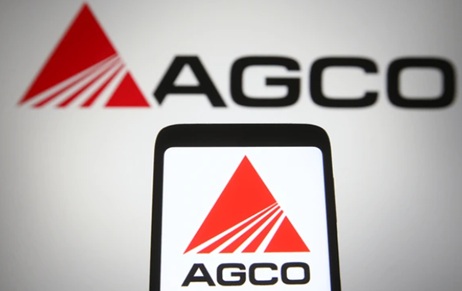Asml Inc is a leading technology company focused on innovation and creating and monetizing its…
The Copyright Amendment Bill, 2011: Proposed Impact on the Film Industry in India
With the recent developments in the Copyright Act and with the Rajya Sabha very recently passing the proposed amendments in the Copyright Act, 1957, we thought of aggregating the major issues with the current version of the Act and the proposed changes in the Act, and how such changes might impact the overall rights of the stakeholders, particularly the ones in the Music and Media Industry. Here is what Rupkatha Basu, an Intern at Khurana & Khurana and 3’rd year student at KIIT School of Law, Bhubaneswar has to say:
When the legendary lyricist Javed Akhtar raised a furor demanding Amit Mehra and Apoorva Lakhia to seek permission from him before opting to remake the cult Bollywood movie Zanjeer, the question arose, is his demand lawful or even justified? The argument that Akhtar raised based on the moral rights of the creator may hold good in his case, but the right to integrity as u/s 57 of The Copyright Act,1957 definitely perishes once the work is made a part of a cinematograph film. There is increasing demand in the film industry to give more rights to the performers, the composers, the lyricists, and most importantly the directors. This is because, at present, producers of films are keeping all rights with themselves. As a result, the lyricists and singers are not getting royalty in case their works are used for commercial purposes.
In the wake of such a scenario comes, The Copyright Amendment Bill, 2011. It was first introduced in the Rajya Sabha in November 2010 but later on, was recommended to the Parliamentary Standing Committee. The PSC has put forth certain recommendations and the final result is the Amendment Bill, 2011.
The Present Law
Section 2(d) of the Copyright Act, 1957 states that in relation to a cinematograph film or sound recording, it is the producer who is the sole author of the work. Reading section 17 along with this, it becomes clear that the producer is the first owner of the copyrighted work. It leaves no doubt that it is he who solely has all the rights and thus only he can assign or transfer it. The lyricist, composer, artists, script-writer, even the director are appointed by him and thus he also holds the copyright is the employer since the work has been created during the course of the employment. The Director, though being the brain behind the film, does not hold any right whatsoever on the movie other than the moral rights. He is not a performer within the meaning of section 2(qq) and thus cannot claim rights u/s 38 of the Act. In fact, as per section 38(4), once a performer has consented to the incorporation of his performance in a cinematograph film, all rights u/s 38 are denied to him.
Presently, the lyricist or the composer of the song receives no royalty once the song has been incorporated in a cinematograph film. This is the position subsequent to the decision of the Hon’ble Supreme Court in its landmark judgment Indian Performing Rights Society Ltd. v. Eastern India Motion Pictures Association[1] (IPRS Case). In the afore-mentioned matter the Copyright Board initially decided that composers and lyricists retained copyright in their musical works incorporated as soundtracks in cinematograph films and thus can collect fees, royalties and charges with respect to those films. On appeal, the High Court set aside the decision of the Board. Finally, the Supreme Court held that interpreting section 17(b) and (c) in terms of section 13(4) would mean that the rights of the music composer and lyricist are defeated by virtue of the producer becoming the first owner of the copyright. If the author of a lyric or musical work authorizes a film producer to make a cinematographic film on his composition, he cannot later claim copyright infringement.
The Road Ahead: The Copyright Amendment Bill, 2011
The Amendment aims to bring the Indian law in conformity with the WIPO Copyright Treaty and the WIPO Performances and Phonograms Treaty.
The 2010 Bill is aimed to give authorship not only to producers like UTV Motion Pictures but also to directors like Imtiaz Ali and Sujoy Ghosh who actually make the movies. It was proposed to amend sub-clause (v) of section 2(d) to acknowledge both the producer and the principal director as the “authors” of a cinematograph film. But this has been deleted from the 2011 version of the Bill on the recommendation of the Parliamentary Standing Committee.
It is further proposed to insert a “Proviso” to section 18 prohibiting lyricists and composers from assigning away their right to receive royalties other than to the legal heirs or to a copyright society for the collection and distribution. Subsection 9* is also to be added to section 19 provides that no assignment of copyright in any work to make a cinematograph film or sound recording shall affect the right of the author of the work to claim equal royalties with the producer in case of utilization of the work in any form other than as part of a cinematograph film or sound recording. This is definitely going to benefit lyricists, composers, scriptwriters when their work is being used outside the movie viz., in commercials. Such modifications were suggested to bring about greater clarity in matters related to royalty.
The Bill proposes to insert section 38A and 38B replacing sections 38(3) and (4). These aim to give exclusive rights to the performers and introduce moral rights for them as well. It says that once the performer has consented to the incorporation of his performance in a cinematograph film, he cannot object to the enjoyment of the performer’s rights by the producer.[2] But the “proviso” to it reads that the performer will still be entitled to royalties in case of making of the performance for commercial use. In both the UK and the US, royalties accruing by utilization of a copyrighted work in a cinematograph film are the legitimate right of the lyricist or the composer.
Section 38B has been proposed in consonance with the existing section 57 which gives moral rights to the author. If the Bill is passed by the Parliament and receives the assent of the President, even the performers can claim moral rights. Injunction or damages can be claimed for mutilating any performance. Thus, when films like Agneepath are remade, the performers of the earlier film can claim damages if their performance is deteriorated by the subsequent performance. Thus, Amitabh Bachchan can definitely have a case if he finds that the remake is by anyway degrading his performance.
Conclusion
The Bill has received widespread support from the International Confederation of Authors and Composers[3]. The restriction on the assignment of the right to royalty may be argued to be in violation of freedom of contract granted as an extension to the freedom of trade guaranteed by Article 19(1)(g) of the Indian Constitution but in reality, it is just a reasonable restriction as other welfare legislations like the Minimum Wages Ac, 1948.
The amendment providing joint authorship to the director was required since the film is essentially a director’s brainchild. Moreover, there is no other way provided in the Bill to protect the interests of the Director.
The Bill is no doubt a necessary change required to undo the injustice caused by the IPRS case and to implement the observation made by Justice Krishna Iyer where he had categorically asked the legislature way back in the ‘70s to do something to help the authors and music composers who are left in the cold
[1] 1977 SCR(3) 206
[2] Section 38A(2) to be inserted by the Copyright Amendment Bill, 2011
[3] Kirti Dahiya, Cinematographic Lyricists Right to Royalty: Myth or Reality? Journal of Intellectual Property Rights, Vol.6, July, 2011 available at http://nopr.niscair.res.in/bitstream/123456789/12448/1/IJPR%2016%284%29%20335-340.pdf visited on 14.05.2012



